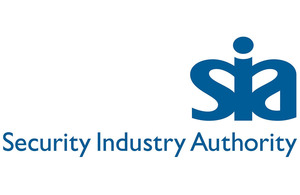Press release
On Friday 4 November 2022, Bolton man Olarotimi Ojugbele was handed a 26-week jail sentence, suspended for 18 months by Willesden Magistrates’ Court, plus a 15-day Rehabilitation Activity Requirement to be completed within 12 months. He was also ordered to pay a £128 victim surcharge.

Friday’s sentence follows Ojugbele’s guilty plea to fraud on Thursday 29 September.
This prosecution follows an investigation by the Security Industry Authority (SIA). A routine inspection by the in-house security manager of a Manchester city centre public hospital in 2020 identified multiple cases of cloned SIA licences. This meant that a number of unlicensed people were working as security staff at the hospital during the COVID-19 pandemic.
The hospital’s security manager referred a cloned licence to the SIA along with incriminating email messages. The SIA’s criminal investigation team identified Olarotimi Ojugbele at an address in Bolton as the holder of a cloned licence.
The SIA invited Ojugbele to an interview-under-caution on 22 September 2021. Ojugbele attended the interview and he made a full admission to SIA investigators that he used two cloned SIA licences. He said that he worked for two SIA approved contractors on at least 70 occasions between 8 October 2020 and 31 March 2021. The SIA is actively investigating Ojugbele’s employers.
Ojugbele had no right to work in the UK. He was arrested by Home Office immigration officials in October 2021 and he was detained at a Middlesex immigration centre.
Nicola Bolton, one of the SIA’s criminal investigation managers, said:
Mr Ojugbele was prosecuted for using someone else’s SIA licence, enabling him to work illegally on 70 occasions as a security operative in a hospital. The licensing regime is there to protect the public. This is particularly important in an establishment such as a hospital where people can be at their most vulnerable. I would like to thank the hospital’s security who have been instrumental in this prosecution.
A cloned licence is a licence that is a copy of a genuine licence. The SIA is reminding employers to check carefully for cloned licences using ultra-violet light technology.
Notes to editors:
- By law, security operatives working under contract must hold and display a valid SIA licence
- Read about SIA enforcement and penalties
- The offence listed above under the Fraud Act 2006 is: section 2 – fraud by false representation
- The SIA licence features several easy-to-check security features, which include:
- on the front of the licence you should be able to see holograms when the licence is tilted backwards and forwards
- the expiry date of the licence is embossed on the bottom of the photograph (not printed on) – you should be able to run your finger over the date and feel that it is raised
- on the back of the licence there is a QR code and a bar code. The bar code should bring up the same licence number as shown on the licence
- a UV light should reveal ‘SIA’ in the top right and bottom left of the licence when scanned across the front. On older licences there will be a watermark pattern on the back of the licence that can only be revealed by the UV
- the address on the rear of the licence should show an ‘E’ post code
Further information:
- The Security Industry Authority is the organisation responsible for regulating the private security industry in the United Kingdom, reporting to the Home Secretary under the terms of the Private Security Industry Act 2001. The SIA’s main duties are the compulsory licensing of individuals undertaking designated activities and managing the voluntary Approved Contractor Scheme.
- For further information about the Security Industry Authority or to sign up for email updates visit: www.gov.uk/sia. The SIA is also on LinkedIn Facebook (Security Industry Authority) and Twitter (@SIAuk).
Published 9 November 2022
Follow this news feed: HM Government





